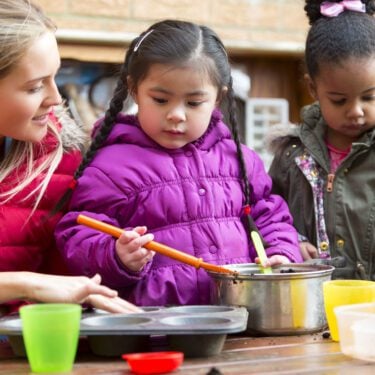Since the beginning of the pandemic, we have been supporting research to capture the social and economic impacts of COVID and to identify ways to mitigate its negative effects.
Our projects have addressed issues across our work in Education, Justice and Welfare. They have charted events and experiences as they happened. For instance, the National Foundation for Educational Research and Amy Skipp have explored the effects of partial school closures on both mainstream and special schools at different stages, and Dr Ruth Patrick has worked with parents on the challenge of living through the pandemic on low incomes. Dr Daisy Fancourt and team have surveyed over 70,000 people across the UK to understand how they have experienced the twists and turns of each wave. We have brought together emerging findings on our website, and for the British Academy’s review on the long-term societal impacts of COVID-19.
Increasingly our projects are looking at longer-term effects. For example, Dr Claudine Bowyer-Crane and her team are exploring COVID-19’s impact on children’s language skills, emotional development, and educational outcomes in their first three years of primary school, through to 2024. Across the age range, the Institute for Fiscal Studies is tracking how the experience of school closures during 2020 relates to children’s eventual educational outcomes.
Our projects continue to inform policy and practice, and in the case of the Nuffield Early Language Intervention, to provide a direct intervention to support recovery in education. Collectively, they provide evidence that without decisive action, the pandemic has the potential to exacerbate existing inequalities.
Shaping a just and inclusive society
With the hope that the worst of the pandemic is behind us, we want to ensure we support research that will not just aid recovery but shape a more just and inclusive society. Our projects have revealed areas in which we expect major challenges, and groups that are likely to continue to face difficulties: shifts in trust and cohesion, support for children and families from public services, prospects for young people, and the impact on inequalities. We have been exploring how research should be directed to respond to these themes through a series of roundtable discussions with researchers, policy makers, and third sector representatives.
Trust and cohesion
Following an early peak, we have seen declining trust in the UK government over the pandemic period. In contrast, trust in, and links to, our local communities has strengthened. There has been increased community organising, with the public taking on additional responsibilities, for instance mobilising to support shielding neighbours. It’s unclear how much of this activity will be sustained, but we should aim to retain the positives, to learn from and share innovative practice; and research can play a role here.
Support for children and families
Young people and vulnerable families have frequently experienced inadequate, fragmented responses from public services, which were already under pressure before the pandemic. A continuing shift from face-to-face to digital delivery across a whole range of services risks increasing exclusion among those without any, or limited, digital access or skills. There have been many examples of local service innovation in response to increased demands, but intensifying financial pressures have the potential to undermine this provision and little support is anticipated from central government. Third sector services, which provided an essential safety net have been badly hit by funding reductions which will undermine what they can do. Again, research can evaluate, and disseminate, examples of effective practice.
Children and young people’s mental health has suffered badly during the pandemic, and the fear is that without access to support this may leave lasting damage. Statutory and voluntary services are unable to meet need, with resulting pressures on schools and parents. Expanding the evidence base for what can be done by non-specialists in school or community settings will be beneficial.
Prospects for young people
Young people at transition points are seen as especially vulnerable, particularly those from already disadvantaged groups. Those moving from education into the world of work may find traditional routes into their chosen careers problematic as many sectors continue to face pressures. Research, using a range of methods, can contribute through understanding the complexities of young people’s experiences. As well as educational recovery, we need ways to deliver other essential skills for employment, and participation in society, which may have been missed, and to reach those who fall out of the system. We need to understand more about what good work will look like going forward.
Intersecting inequalities
Existing socio-economic and ethnic inequalities have been exacerbated during the pandemic, and disadvantaged groups have experienced adversities. However, we still understand little about the experience of some groups who remain largely ‘invisible’ in data collection or are subsumed into broader categories that mask distinctions. We need to know more about how inequalities intersect and compound. New methods of data linkage and new cohort studies may shed light. Qualitative and participatory methodologies could help us hear the voices of excluded groups. There is some optimism that empathy with those in receipt of benefits will increase due to more people needing to claim, which could in turn strengthen calls for change.
Our response
All of these concerns resonate with our funding priorities and are reflected in our updated Guide for applicants. Understanding how the pandemic has disrupted our lives, and identifying ways we might recover from it, aligns strongly with our mission to advance social well-being by building a just and inclusive society.
Pointing to just a few examples, we want to identify effective interventions to address educational disadvantage, including the relationship with mental health issues, and to influence policy and practice on young people’s pathways through education and training into work. We want to know more about entry to, and progression within, employment, and how ethnicity, age and gender shape experiences in the labour market. Identifying economic policy options that might enhance well-being and challenge inequality remains a priority for us. The accelerated shift to online delivery strengthens the need to support research on the ability of public services to operate in a way that is fair and effective, particularly in relation to access to the justice system. We continue to be interested in a range of methodologies and disciplines to address these topics.
We recognise that the pandemic catalysed rather than created the majority of the challenges we now face, and so it will remain important to understand how other forces, such as the transition to net zero and shifting demographics, work in parallel, and interact, to shape opportunities and well-being. We encourage researchers from all disciplines to consider how their interests might align with our funding priorities to develop applications with the potential to help us answer some of the big questions we face as a society. Our next deadline for outline applications is 13 September, and full guidance is available on our funding page.
About the author

Catherine joined the Nuffield Foundation’s Welfare team in early 2019, contributing to the development, and management of the grants portfolio. She leads on our digital society grants and manages our Oliver Bird programme of research relating to the impact of musculoskeletal conditions on wider well-being. She has co-ordinated the COVID-19 rapid response call.
Prior to joining the Nuffield Foundation, Catherine managed Research and Policy teams with the sight loss charity RNIB. Previously she worked in the Department of Health as Research Manager with the Children and Young People’s Public Health and Teenage Pregnancy policy teams.




















































